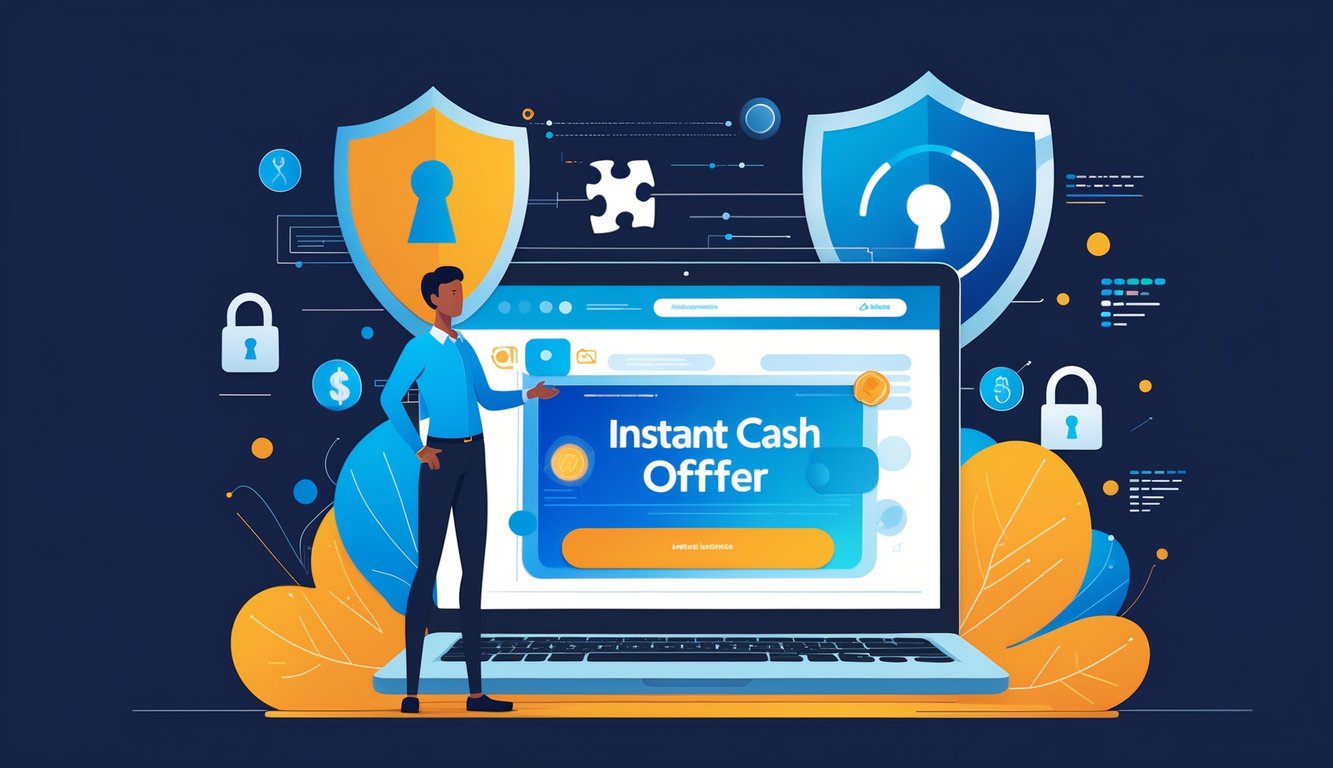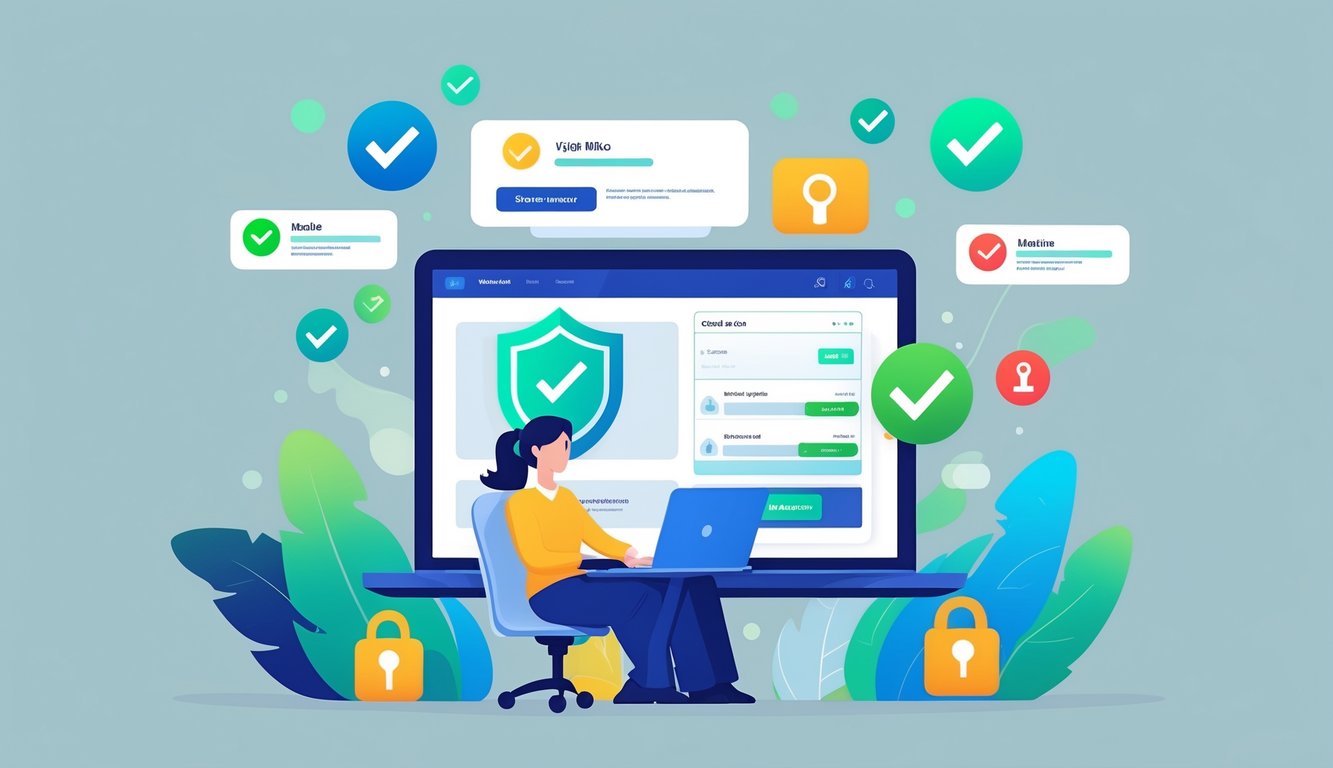
How to Identify Trustworthy Online Offer Services

You’d think seller protections would be a given, but nope—half these sites are sketchy, even if they’ve got thousands of five-star reviews. I can’t count how many “licensed” buyers I’ve seen with typos in their contracts. Flashy branding? Meh. I trust it less if it looks too polished.
Essential Criteria for Safe Platforms
Why is it that eBay, of all places, still offers better protection than most “instant cash” sites? SSL encryption is everywhere, but where’s the escrow? If I don’t see one, I’m gone.
I’ve lost track of how many “trusted” services won’t give a real address or even a phone number. If there’s no seller agreement, no fee schedule, or the privacy policy is just a wall of nonsense, I’m not sticking around. OfferUp actually hires third-party security reviewers (Security.org, 2023)—that’s the sort of thing I want to see. Sometimes I’ll literally email their supposed regulator to check if they’re real.
If a site wants sensitive info before making an offer, or tries to pay with something weird (gift cards, really?), it’s not about helping you. Two-factor authentication is a must, but I still get password reset spam after signing up. Maybe just use a burner email.
Signs of Reputable Buyer Networks
Some “verified” networks brag about thousands of deals but have, like, ten buyers, all with emails that look copy-pasted. Real buyers leave honest reviews—good and bad. If all you see is glowing praise, something’s off.
The better platforms actually connect to legit banks. Carvana, for example, lets you check VINs and compare quotes with KBB or Edmunds. If I can’t do that, I get suspicious. Even their support reps are CSAT-certified (Gartner, 2024), which is weirdly reassuring.
If there’s no post-sale help or no clear way to complain, I’m out. Transparency about who’s buying and how they’re vetted is huge. Testimonials that only say “fast cash” and nothing about how long it took or what went wrong? That’s a red flag.
Steps to Improve Seller Protection Online
What drives me nuts is everyone acts like “verification” means clicking a cartoon badge. It doesn’t. People lose money all the time (Action Fraud UK backs this up) because they trust the basics and forget to check reviews or payment methods.
Verifying Buyer Credentials
I hit “sell instantly” and got a buyer with a blurry photo and no history. Turns out, according to Which? 2024, 90% of sellers who checked ID and called the buyer avoided fraud. Who wants to email back and forth just to get an address? Not me.
Now I ask for LinkedIn profiles, PayPal-verified emails, whatever I can find. Sometimes I’ll Google their username—better safe than sorry. Last year, a Companies House lookup saved me from mailing my laptop to a scammer. People still give out personal info way too fast, especially if the buyer claims to be from a big company. No thanks.
Using Secure Payment Methods
Here’s where it all falls apart—payment. I used to think a bank transfer was safe. Nope. Most sites say you’re responsible if the money disappears (see FCA warning, Jan 2025). Now I only use platforms with real protections, like PayPal Goods & Services or Escrow.com. Yes, there are fees, but I’d rather pay than get scammed.
A friend of mine uses Revolut for everything—the chat logs are handy, and the dispute system actually works. I keep screenshots of everything, especially “pending” transactions. If someone insists on cash, I’ll only meet at a bank. People still get fake bills. If a site brags about “12% cheaper energy” or “5 credit card tips” but can’t promise payment protection, I’m not touching it. That’s like giving your keys to a raccoon.
Legal Considerations When Accepting Instant Cash Offers
Nobody reads the fine print, right? That’s where the real mess hides: sneaky deadlines, surprise fees, and the nagging suspicion you’ve missed something. Contracts are a minefield; one bad click, and you’ve signed away your leverage. My lawyer friend says even pros mess up rescission rights.
Important Contract Details to Review
You know those “Accept Offer” buttons with a million prechecked boxes? Yeah, you’re probably agreeing to transfer liability, skip inspections, and pay penalties if you change your mind. Consumer Reports says 68% of people miss fee schedules buried in the addendums. Why isn’t that front and center? Tables might help, but they get buried, too:
| Clause | Common Pitfall | Insider Tip |
|---|---|---|
| “As-is” Sale | You’re stuck with defects | Always get a full inspection first |
| Early Termination | Huge penalty fees | Ask for the fee schedule in writing |
Buyers toss around “void where prohibited,” but what does that even mean? My real estate attorney (14 years in, loves paperwork) says sellers sign away claims all the time by missing a single initials page. I used to think “boilerplate” meant fair, but then I’d scroll down and find a refund policy stacked against me.
Understanding Your Rights as a Seller
Who actually knows their rights? Not me. Not most people. My cousin’s a real estate agent and even she’s vague until you push. People think disclosures disappear after you click “accept,” but, fun fact, you’re still responsible if you miss a material defect. FTC says you have to be truthful, even on instant offers, and there’s usually a lookback for recent repairs.
Worst thing? Indemnity clauses that stick you with costs after the sale. I once missed a waiver for anti-fraud protections—contract law won’t save you if you just click through. My lawyer buddy says watch out for forced arbitration, too—no appeals, no second chances. Nearly got burned by that on a home sale last winter.
I figured I’d get paid right after handing over the keys, but nope—some reviews say it takes weeks. Apparently, “reasonable period” in a contract doesn’t mean anything specific. And nobody warns you that your right to back out might expire in 24 hours, not three days. So much for thinking you can sleep on it.
